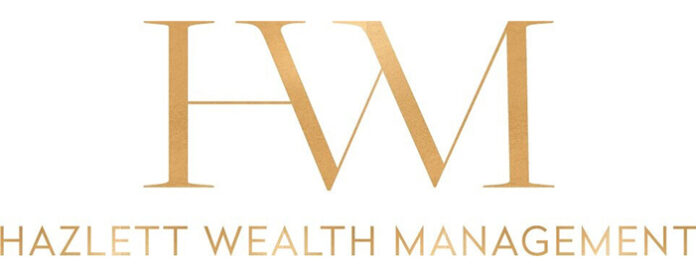BY SUZANNE HAZLETT, MBA, CIMA®, CFP®
WHAT IS A BOND?

A bond represents a loan from an investor to an issuer, such as a corporation or government entity. The issuer then makes periodic interest payments to the investor at a pre-determined rate called a coupon rate. At the end of the bond’s term or maturity date, the issuer pays the investor back for the bond’s original value.
WHAT ROLE DO BONDS PLAY IN A PORTFOLIO?
There are three main financial asset classes: equities or stocks, fixed income or bonds, and cash and cash alternatives such as deposit accounts, money market funds, and short-term certificates of deposit. Fixed-income securities serve two leading roles in a portfolio – they can act as a hedge to stock market risk and provide a source of income. While equities can offer opportunities for higher returns, they also present a higher potential for volatility. Bonds can provide stability in a portfolio with the trade-off of offering lower returns. The appropriate allocation to fixed income naturally varies for each investor depending upon individual time horizons, income requirements, and ability to endure volatility and risk of loss.
HOW ARE BONDS PRICED?
A bond’s price can be determined by supply and demand. However, the main factor impacting bond prices is the prevailing interest rates. The relationship between bond values and interest rates is inverse, meaning bond prices go down when interest rates go up, and bond values go up when interest rates go down.
WHAT RISKS DO BONDS BEAR?
Because a bond is ultimately a loan from the investor to the issuer, the issuer may fail to make the interest payments or repay the principal amount. An investor can limit exposure to such risks by researching a bond’s credit rating before investing. Higher-quality bonds have a relatively low risk of default and are defined as investment grade. Bonds with lower credit ratings are known as high yield or non-investment grade and are derisively called junk.
HOW CAN AN INVESTOR OWN BONDS?
Bonds can be held by purchasing individual bonds or investing in a bond fund. Despite the volatility of the financial markets and general economic uncertainty, there are many income opportunities in owning individual bonds. One advantage is the ability to custom-select bonds that fit an investor’s needs or goals.
Individual bonds have set maturity dates when the investor will be paid back and have fixed interest payments for the bonds’ lifetimes. Bond funds can be helpful for smaller investment sums by providing diversification as a pooled investment of broad exposure to multiple securities.
Suzanne Hazlett, MBA, CIMA®, CFP®, is a Certified Investment Management Analyst® and CERTIFIED FINANCIAL PLANNERTM professional. Investment advisory services are offered through Raymond James Financial Services Advisors, Inc. Securities are offered through Raymond James Financial Services, Inc., member FINRA/SIPC. Past results offer no guarantee of future investment performance. All investing presents a risk of principal loss. HAZLETT WEALTH MANAGEMENT, LLC is independent of Raymond James and is not a registered broker/dealer. 675 Sun Valley Road, Suite J1 + J2, Ketchum, Idaho, 83340 208.726.0605 HazlettWealthManagement.com

